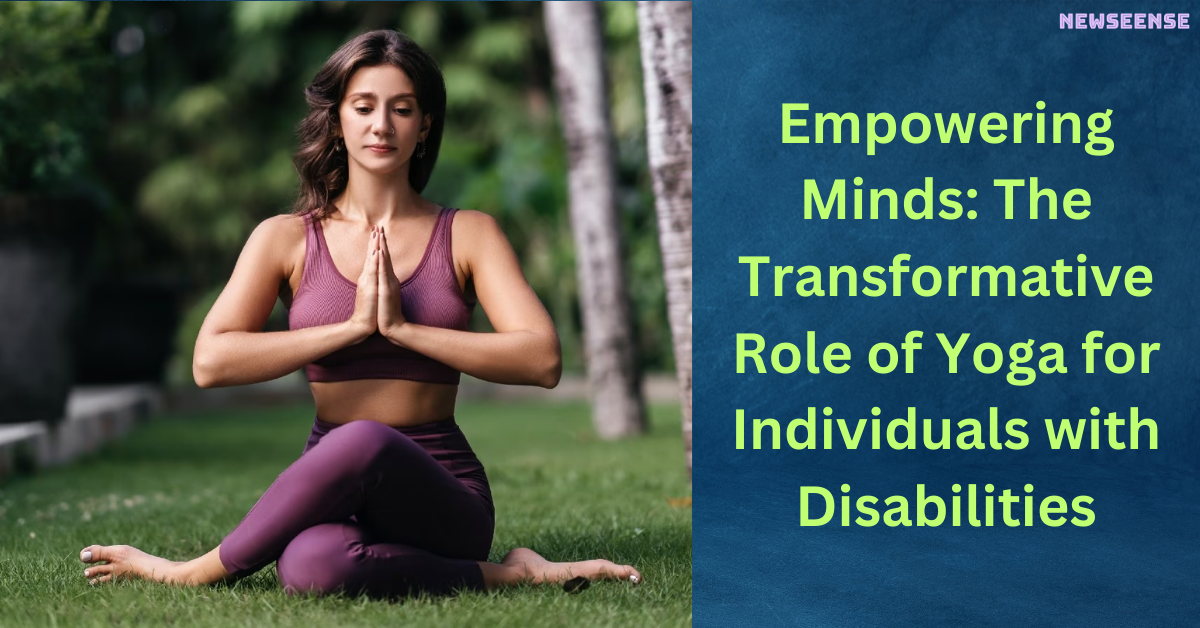
In the realm of mental well-being, experts highlight the pivotal role that Yoga plays in addressing challenges faced by individuals with disabilities. Beyond its physical postures, Yoga offers a holistic approach that integrates the mind, body, and breath. Himalayan Siddhaa Akshar, Founder of Akshar Yoga Kendra, delves into the significance of Yoga for mental well-being in an exclusive interview.
Table of Contents

Maintaining Mental Well-being through Yoga
According to Akshar, Yoga’s impact on mental health is profound. The inclusive nature of Yoga fosters a sense of community and acceptance, contributing significantly to the overall well-being of individuals with disabilities. Here’s a breakdown of key aspects he highlighted:
- Pranayama for Calming the Mind: Simple breathing exercises, particularly deep belly breathing, serve as effective tools for alleviating stress and anxiety. For individuals with disabilities, the calming and centering aspects of pranayama provide valuable support in managing emotions and cultivating a sense of calm amidst life’s challenges.
- Physical Health and Wellness: Tailored physical postures, or asanas, contribute to both physical and mental well-being. Adapted to individual abilities, these movements enhance flexibility, strength, and balance. Whether seated or standing, Yoga ensures that everyone, regardless of mobility impairments, can access its benefits.
- Mindfulness through Yoga: Mindfulness, a core component of Yoga, plays a pivotal role in mental health. By encouraging individuals to be present in the moment, Yoga helps manage overwhelming thoughts and fosters a positive outlook. This aspect is particularly relevant for those dealing with depression, breaking the cycle of negative thinking.
- Meditation for Recovery: The incorporation of meditation into a Yoga practice provides individuals with disabilities a valuable tool for managing stress. Guided imagery and focused attention techniques offer a respite from daily challenges, creating space for mental rejuvenation.
- Self-Care and Acceptance: Yoga’s emphasis on self-acceptance and non-judgment promotes a positive mindset. For individuals facing societal stigmas or internalized negative beliefs, this practice encourages a shift from limitations to possibilities, fostering a healthier self-image.
- Yoga for Relaxation: The relaxation response induced by Yoga positively impacts the nervous system. Particularly beneficial for individuals with disabilities experiencing heightened stress levels, Yoga activates the parasympathetic nervous system, leading to a decrease in overall stress and anxiety.
- Inclusive Yoga Therapy: Incorporating Yoga into the lives of individuals with disabilities requires an inclusive approach. Trained Yoga instructors can modify practices to suit different abilities, ensuring everyone can participate comfortably. Accessible Yoga props and modifications enable individuals to experience the full spectrum of benefits that Yoga offers.
In conclusion, the transformative power of Yoga extends far beyond physical fitness. It emerges as a beacon of hope and empowerment, offering individuals with disabilities a holistic toolkit for enhancing mental well-being, fostering self-acceptance, and embracing a positive outlook on life.
Also read: https://newseense.com/celebrating-creativity-and-craft-national-screenwriters-day-2024/
- BJP President JP Nadda Issues Notice to Dilip Ghosh Over Controversial Remarks on Mamata Banerjee
- Ram Charan and Kiara Advani’s ‘Jaragandi’ Song from Game Changer Released
- Pre-Match Banter: Rohit Sharma’s Flying Kiss Recreation Adds Spice to MI vs SRH Clash
- Swami Smaranananda Maharaj, President of Ramakrishna Math and Ramakrishna Mission, Passes Away at 95
- Stand-up Comedian Munawar Faruqui Breaks Silence on Social Media After Mumbai Police Detention






One Comment